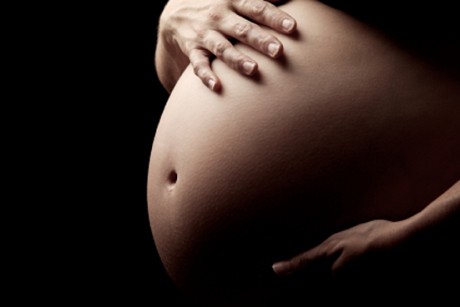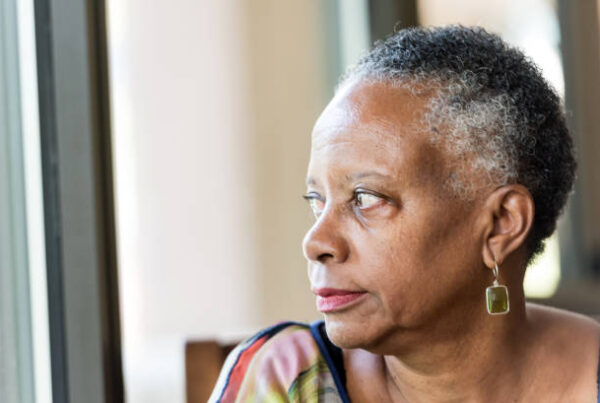Victoria and Paul are in their 30s, but run their own personal businesses and live in their own house in the central part of Abuja with their six-year-old daughter, Esther.
The couple has been married for about eight years, and have a happy family home, but even though they love their doting daughter with all their heart, they cannot help feeling that something is missing.
Victoria put the feeling into words: “I feel like we’re not yet a real family, not a complete family because there’s only one child.”
Victoria and Paul are one of millions of couples in Nigeria and across the world that are dealing with secondary infertility. These couples have conceived one or more children but suddenly can’t get pregnant again.
It came as a shock for Victoria, who always imagined she’d have four or five children and got pregnant with Esther after a year of trying. But when they tried again, nothing seemed to work. They went to a gynaecologist when Victoria was just 27. She’s now 32, and the doctors have no explanation.
To her, every appointment was the same thing. The doctors said her prognosis was great, and that since she has had a baby before, she would definitely have another. Most doctors would agree with that assessment. Statistically, 85 percent of people who’ve been pregnant once can get pregnant again.
But Victoria and Paul had spent a fortune on fertility treatments; almost four years of needles, drugs, and procedures; three pregnancies; three miscarriages—including one that was particularly puzzling and painful.
It came during her first round of in vitro fertilization. The blood tests confirmed she was pregnant. The due date was set. But during her six-week ultrasound, her doctor said she had a blighted ovum, a condition which fools the body into thinking it’s pregnant.
She developed all symptoms and hormones that accompany pregnancy. But a fetus never formed. With that devastating news, Victoria waited for the miscarriage to begin. It didn’t. So a week later, her doctor did another ultrasound and said there was an eight-week-old baby in there.
It had the perfect heartbeat and the perfect size. A miracle. The couple was overjoyed, then without warning, the baby’s heartbeat stopped two weeks later. They were devastated.
They tried again. Going to the fertility clinic with her daughter Esther was awkward. She saw the looks in people’s eyes and thought, “Should I really be doing this, it’s like rubbing their noses in it.”
Victoria was still quite hopeful that she would become pregnant again and she had full support from Paul although there were moments of wishful thinking.
There are some common causes for secondary infertility including the age of one or both parents, ovulation problems, endometriosis, fibroids in the uterus among other causes.
But then there are patients like Victoria and Paul, where there doesn’t seem to be an explanation. The only thing that’s happened is that the uterus has swelled up and gone down again.
Couples like Victoria and Paul facing secondary infertility are somewhat calmer than couples still trying for baby number one. They don’t have the panic-stricken look or the haunted expression in their eyes. They know that it’s worked once, but they still worry.
There is a unique angst for couples dealing with secondary infertility. People don’t really get it, especially people who are dealing with primary infertility issues. Couples who can’t have even one child might say, or imply, ‘You should be happy with what you’ve got’ but the need for a second child is different and incomparable.
Victoria tried to give herself a break and to realize that she’s entitled to want what she wants, that she doesn’t have to apologize to anybody, or justify it to anybody.
Of course there are all the helpful hints and advice that almost all fertility patients hear from well meaning family and friends—suggestions that the couple “just relax” or try various medical solutions.
But sometimes it backfires. It is like really saying ‘It isn’t happening for you because you’re doing something wrong, and if you just find the magic variable and plug it into the equation then you’ll have a baby’.
So she was on this never-ending search for the magic variable because there’s never been an explanation for her fertility issues and it’s an uncomfortable situation. How would she tell people that those comments don’t help?
Luckily, they got a fertility clinic that was specific about what would help particularly from members of their support network.
After a short investigation and some drugs prescribed, they tried IVF with PICSI, miraculously, it worked like a charm. Victoria got pregnant again at the first try. She loved being pregnant, and loved giving birth, and loved breast-feeding, she loved it all. She loved seeing her husband and daughter together but still readily admits that her most urgent desire was for this new child.
Such feelings are completely normal. Many women are more likely to have a sense in their mind of what they want their family to look like. As a mother, Victoria is often immersed in the world of children. Everywhere there are other mothers with bulging bellies talking cheerfully about the second child on the way, it excites her more than ever to be part of that world.
Before now, when it was Esther’s birthday, it used to be a reminder of the growing age gap between her and her potential sibling; one more year she feels she’s dooming the child to a lifetime of loneliness and self-centeredness as an only child.
But all that has now changed, she is currently eight months pregnant and her second baby is due in just under five weeks. Still, despite all the tests, the needles, the cost, the tears, Victoria gets glimpses of good that have come with the pain of these past years that put things into perspective.
Victoria finds that now when she meets other couples experiencing secondary infertility, it is like a silent bond. They know each other’s story and it’s like knowing, a secret handshake.
She remembers how hard it was when she was trying to get pregnant. One friend who was pregnant once said : “Oh, I’m sick of being pregnant, if I could just get rid of this baby.”
Although she would have liked a third and perhaps a fourth child, Victoria went through the heartbreak of secondary infertility quite boldly.
Fertility experts usually tread carefully with couples going through secondary infertility rightfully because some people are very distressed by secondary infertility.
Many couples get pregnant easily, then experience difficulty the second time. For some people, like Victoria, not being able to have the second, it’s huge.
Then there is age – some people might have waited three or four years between children and in that time the woman has gone from 33 to 37 or 38. For most it does not matter, but for a number of women, there will have been a drop off in the quality of their eggs. Also as couples age they tend to have intercourse less often.
Finances are also an issue. In Nigeria, there is no IVF public funding a child and there are specific difficulties with coming to terms with secondary infertility.
For couples that don’t have a family at all, it’s like something is fundamentally wrong. The ability to cope with failure has a much broader spectrum with secondary infertility than primary infertility.
There is often a lot of stress going on in the lives of couples as they try to conceive a second child. It’s like there’s not enough time and they don’t have time for what is needed. But hope is a powerful drug. It’s so effective that its effect never dies.





